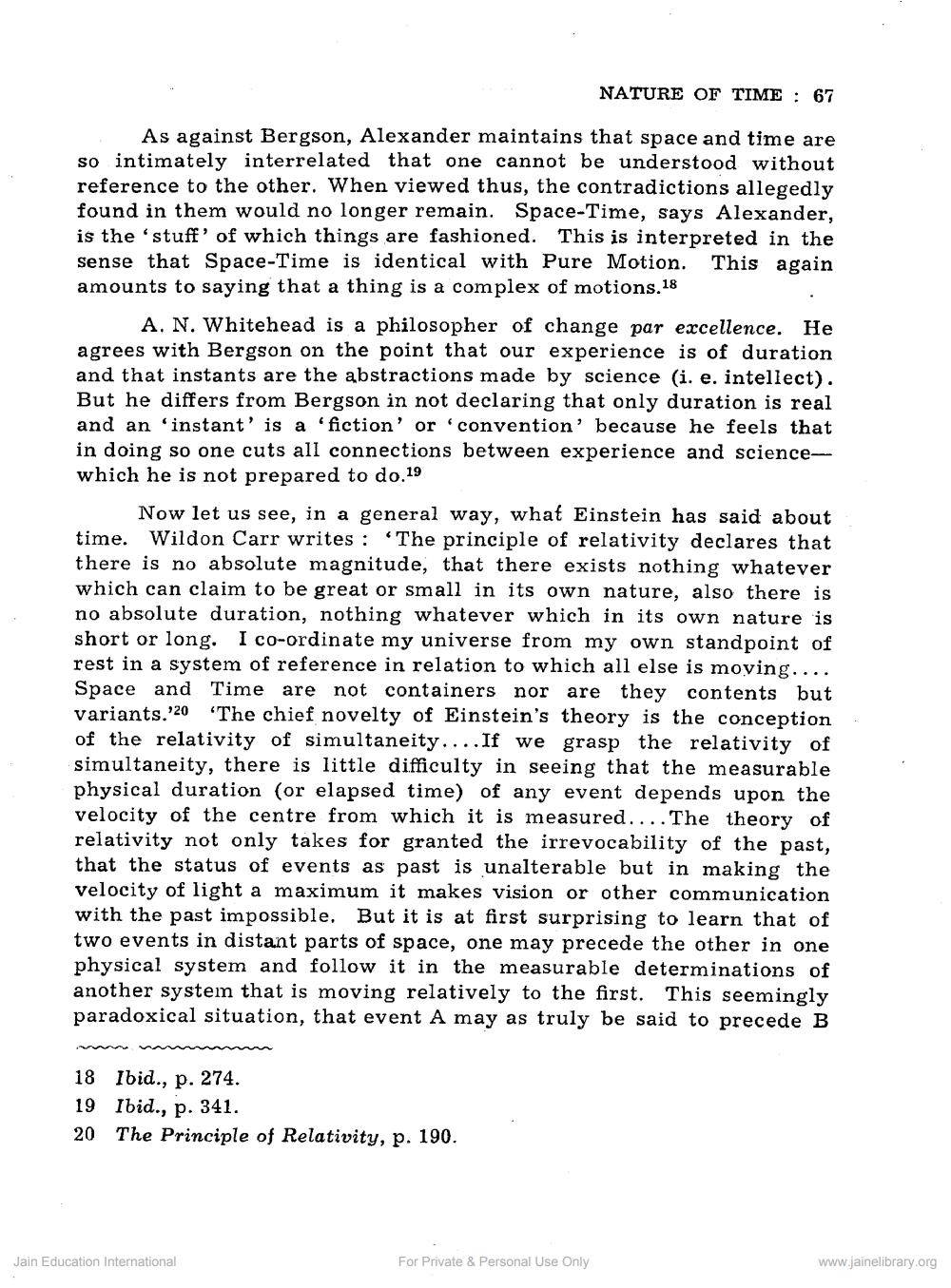Book Title: Nature of Time Author(s): Nagin J Shah Publisher: Z_Mahavir_Jain_Vidyalay_Suvarna_Mahotsav_Granth_Part_1_012002.pdf and Mahavir_Jain_Vidyalay_Suvarna_ View full book textPage 5
________________ NATURE OF TIME : 67 As against Bergson, Alexander maintains that space and time are so intimately interrelated that one cannot be understood without reference to the other. When viewed thus, the contradictions allegedly found in them would no longer remain. Space-Time, says Alexander, is the 'stuff' of which things are fashioned. This is interpreted in the sense that Space-Time is identical with Pure Motion. This again amounts to saying that a thing is a complex of motions. 18 A. N. Whitehead is a philosopher of change par excellence. He agrees with Bergson on the point that our experience is of duration and that instants are the abstractions made by science (i. e. intellect). But he differs from Bergson in not declaring that only duration is real and an instant' is a 'fiction' or 'convention' because he feels that in doing so one cuts all connections between experience and sciencewhich he is not prepared to do.19 Now let us see, in a general way, what Einstein has said about time. Wildon Carr writes : "The principle of relativity declares that there is no absolute magnitude, that there exists nothing whatever which can claim to be great or small in its own nature, also there is no absolute duration, nothing whatever which in its own nature is short or long. I co-ordinate my universe from my own standpoint of rest in a system of reference in relation to which all else is moving.... Space and Time are not containers nor are they contents but variants.'20 "The chief novelty of Einstein's theory is the conception of the relativity of simultaneity....If we grasp the relativity of simultaneity, there is little difficulty in seeing that the measurable physical duration (or elapsed time) of any event depends upon the velocity of the centre from which it is measured. ... The theory of relativity not only takes for granted the irrevocability of the past, that the status of events as past is unalterable but in making the velocity of light a maximum it makes vision or other communication with the past impossible. But it is at first surprising to learn that of two events in distant parts of space, one may precede the other in one physical system and follow it in the measurable determinations of another system that is moving relatively to the first. This seemingly paradoxical situation, that event A may as truly be said to precede B 18 19 20 Ibid., p. 274. Ibid., p. 341. The Principle of Relativity, p. 190. Jain Education International For Private & Personal Use Only www.jainelibrary.orgPage Navigation
1 ... 3 4 5 6 7 8 9 10 11 12 13 14 15 16 17 18 19 20 21 22 23 24 25
